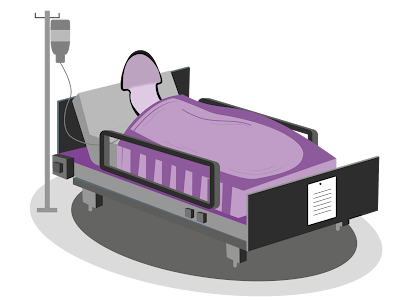Myths & Facts about Body Weight and erectile dysfunction(ED)
Introduction
Erectile dysfunction (ED) is the inability to get or maintain an erection firm enough for sexual intercourse. The condition affects millions of men worldwide and can have a significant impact on their quality of life. There are many factors that can contribute to erectile dysfunction(ED), including body weight. In this article, we will explore the myths and facts about body weight and erectile dysfunction
Myths About Body Weight and Erectile Dysfunction
Myth 1: Only obese men can develop erectile dysfunction
Fact: While obesity is a risk factor for erectile dysfunction, it is not the only factor. Men who are overweight are at risk. BW is a measure of body fat based on height and weight. A BWR of 25 to 29.9 is considered overweight, and a Body Weight Ratio(BWR) of 30 or higher is considered obese. Men with a BWR of 25 or higher are at increased risk of developing ED
Myth 2: Losing weight will cure erectile dysfunction
Fact: Losing weight can improve erectile dysfunction, but it is not a cure. ED is a complex condition that can have many underlying causes, including diabetes, high blood pressure, and heart disease. Losing weight can help reduce the risk of these conditions and improve overall health, but it may not completely eliminate ED
Myth 3: Men who are physically fit cannot develop erectile dysfunction
Fact: While physical fitness can reduce the risk of developing ED, it is not a guarantee. Even men who are in excellent shape can develop the condition due to other factors such as stress, anxiety, or medication side effects
Myth 4: All men who are overweight or obese have erectile dysfunction
Fact: Not all men who are overweight or obese have erectile dysfunction. However, being overweight or obese does increase the risk of developing the condition. Men who are overweight or obese should be aware of the risk and take steps to maintain a healthy weight
Myth 5: Erectile dysfunction is only a problem for older men
Fact: While the risk of developing ED increases with age, younger men can also develop the condition. In fact, ED can be a sign of underlying health problems that may be more prevalent in younger men, such as diabetes or high blood pressure
Facts About Body Weight and Erectile Dysfunction
Fact 1: Obesity is a significant risk factor for erectile dysfunction
Studies have shown that men who are obese are more likely to develop erectile dysfunction than men who are of a healthy weight. Obesity can affect hormone levels, blood flow, and nerve function, all of which can contribute to ED. Losing weight can help reduce the risk of developing ED in obese men
Fact 2: Being overweight can also increase the risk of erectile dysfunction
Men who are overweight but not obese are also at increased risk of developing erectile dysfunction. A study published in the Journal of Sexual Medicine found that men with a BMI of 25 to 30 had a 21% higher risk of developing ED than men with a BMI of less than 25
Fact 3: Losing weight can improve erectile dysfunction
Studies have shown that losing weight can improve erectile function in men who are overweight or obese. A study published in the Journal of Sexual Medicine found that men who lost an average of 33 pounds over two years had a significant improvement in erectile function compared to men who did not lose weight
Fact 4: Physical activity can reduce the risk of erectile dysfunction
Regular physical activity can help reduce the risk of developing ED. Exercise improves blood flow, reduces stress, and can help maintain a healthy weight. A study published in the American Journal of Epidemiology found that men who engaged in moderate to vigorous physical activity had a 30% lower risk of developing ED than men who were sedentary
Fact 5: Erectile dysfunction can be a sign of underlying health problems
ED can be a sign of many health problems such as diabetes, high blood pressure, or heart disease. These conditions can affect blood flow and nerve function, leading to ED. Men who experience ED should speak with their healthcare provider to determine if there is an underlying medical condition that needs to be addressed
Conclusion
While there are many factors that can contribute to ED, body weight is a significant risk factor. Men who are overweight or obese are at increased risk of developing ED but losing weight and engaging in regular physical activity can help reduce the risk. ED can also be a sign of underlying health problems that need to be addressed. Men who experience ED should speak with their healthcare provider to determine the underlying cause and develop an appropriate treatment plan.





Comments
Post a Comment